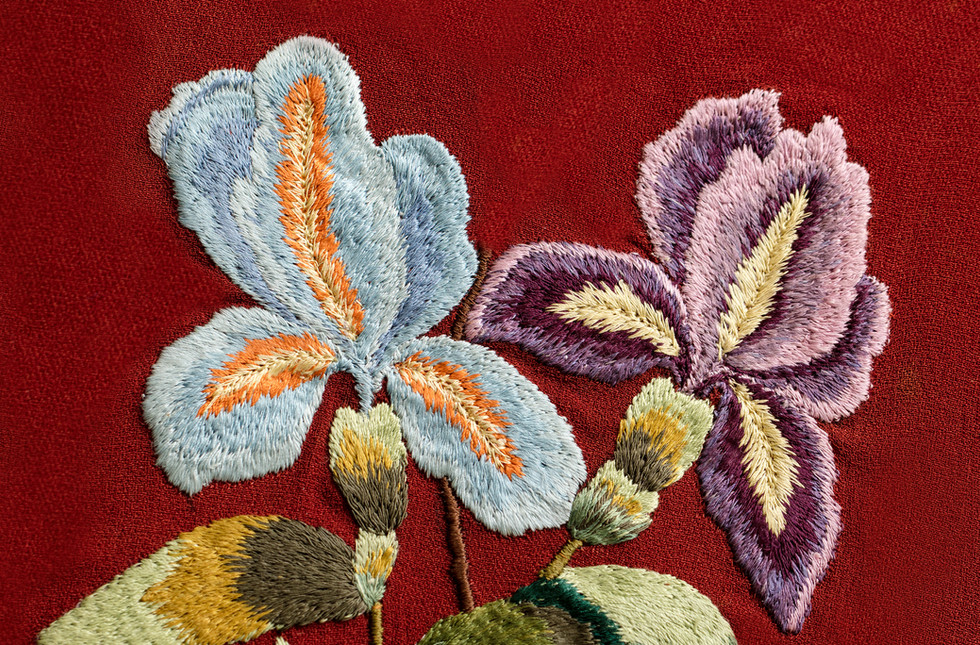6 reasons to talk about grief (& a metaphor)
- Lisa at Catalyse Coaching

- Oct 7, 2019
- 4 min read
Updated: Oct 11, 2019
Last week, I found myself talking with many people about life & loss – loss of wellbeing, temporary loss of hope, loss of a loved one.
Listening to their stories, and thinking about my own, it struck me how hesitant we can be to talk about loss, or to let “difficult” emotions surface – and how the opposite is what we need.
So, given there’s already material out there about grief in general (see end), I’m focusing on just one aspect that can help - “Talking About It”.
We can really struggle with this, myself included (e.g. if we/they are “reserved”; if we’re nervous of upsetting someone; or if “How are you?” gets the ubiquitous “I’m OK”).
We need to get past this. There are wide-ranging psychological & practical reasons why it’s good to talk about loss, grief & sadness.
A list of reasons to talk is below. I’d love to hear your ideas too.
And because metaphors can often better convey the essence of things and help us understand (ourselves, and others), at the end is my metaphor for loss - the fabric of life.
Six big reasons to talk about loss
1. Coping with Emotions
Emotions need expressing, or they ‘go underground’, then pop up in worse ways.
Talking won’t overwhelm or upset someone who isn’t already feeling that way – and if they are overwhelmed, those feelings will badly need venting. Fight your instinct to avoid it!
Brief chats let our brains ‘ration out’ our emotions, avoiding both overwhelm & bottling up.
Strangers can empathise with less of their own sadness, giving ‘space’ for feelings & grief.
We can't "make things worse" by talking, instead we help make things better.
Asking 'How do you feel?' may help us open up, more easily than 'How are you?'
2. Accepting what’s happening
Talking helps us work through any shock, denial, disbelief, withdrawal, numbness.
Answers from others (e.g. nurses, family) can help quench our normal ‘need to know’.
Others can gently guide us, to accept what has changed - and the implications.
3. Normalising loss
Most people experience loss at some point, so talking helps us feel much less alone.
Hearing their stories of loss helps us realise that if they recovered, so will we, eventually.
We can learn from what others found helped them (eg prayer/meditation, support groups).
4. Connection & support
Sharing memories or the experience of loss can build new bonds or deepen existing ones.
Hearing our pain & loss enables others to ‘rally round’ us, with much-needed support.
Practical support reduces risk if we’re not thinking at our best, or not looking after ourselves.
Colleagues who know can cover, compensate & care for us (or provide needed distraction).
Once they understand, others can help us ‘find some good’ (e.g. raising awareness / funds).
Family and friends can help us remember we’re loved - and loveable.
5. Making 'sense' of it and creating meaning
Language is how we make sense of, and learn about, the world - so ‘finding words’ is vital.
Free-flowing talks help us unravel things that really trouble us (e.g. regret, sudden change).
Sharing experiences can help us see the meaning others eventually found, or help us see that sometimes there is no ‘reason’.
6. Regaining peace & hope
When others share their stories, we see there is hope of continued life & peace in the end.
Others can gently light our way, reminding us eventually that there’s more than ‘blackness’.
Talking can reduce unhelpful ‘rumination’, taking us out of ourselves & helping us notice the wider world again.
Family and friends can help us slowly begin to feel ‘safe’ and ‘alive’ again.
Others can tempt us into activities, so we eventually regain gratitude & joy of living.
How do you feel about talking about loss? Add your comments.....
The fabric of life – a metaphor for loss
My life is like a piece of cloth, with a muddled tapestry being built.
The picture is filled with ‘threads’ of the many people I’ve met, known & loved. The people I hold closest are woven the most frequently & deeply into my tapestry.
Losing a loved one feels like all their threads are being yanked & torn from my tapestry. My fabric is still here, but so full of snags & gaps, that I can’t comprehend my life anymore. There's so much ‘missing’, I wonder why, or how, or if I still exist (even though I clearly do).
But by focusing on the gaps, what haven't I seen? When I look more carefully, I see …..
Nothing erases history - their threads feel snagged & deeply poignant for sure, but their lives, and their love, are part of who I am, and their threads will always be there - in me, for me.
Since they are still here, I can ‘see’ them anytime I look closely (at my memories, or myself).
They’re still weaving, just fainter – sadly no new memories, but 'remembering' recalls their essence, & fragile threads weave whenever I think of them (e.g. “She/he'd laugh at that”).
They 'look out for me' - their threads becoming fainter eventually prompts me to act – to recall their essence, but also to learn from the loss and deepen my connection with others.
Others rally round when they see the 'gaps', bringing hope – they darn & patch me, share their memories, listen to my regrets & hep me comprehend
And, only very slowly at first, other people & joys in life help fill my tapestry going forward.
I notice that the Circle of Life metaphor is partly there - but my view is that it’s much more complex than that. The circle, and my loved ones, are embedded in my very fabric, for always.
Material about loss & grief
Talking & expressing: Doodles expressing grief (Gary Andrews -->), why talk, and breaking the grief taboo
Overviews & useful info:
A rich Wiki summary of grief, a help article (process, symptoms, self-care, support) and varied posts about grief
What happens during loss:
Can we have a Continuing Bond, how personality effects the ways we grieve, the 'faces' and reactions of grief, some of the feelings that arise, and facing our own death (now considered an 'old' theory, Kübler-Ross's Five stages of grief).
Coping:
Charities eg Cruse, Open to Hope, looking after oneself by NHS & support options by Mind.
Helping others:
How we can help someone who is grieving and how we can talk about grief.











link link link link link link link link link link link link link link link link link link link link link link link link link link link link link link link link link link link link link link link link link link link link link link link link link link link link link link link link link link link link link link link link link link link link link link link link link link link link link link link link link link link link link link link link link link link link link link link link link link link link link link link link link link link link link link link link link link